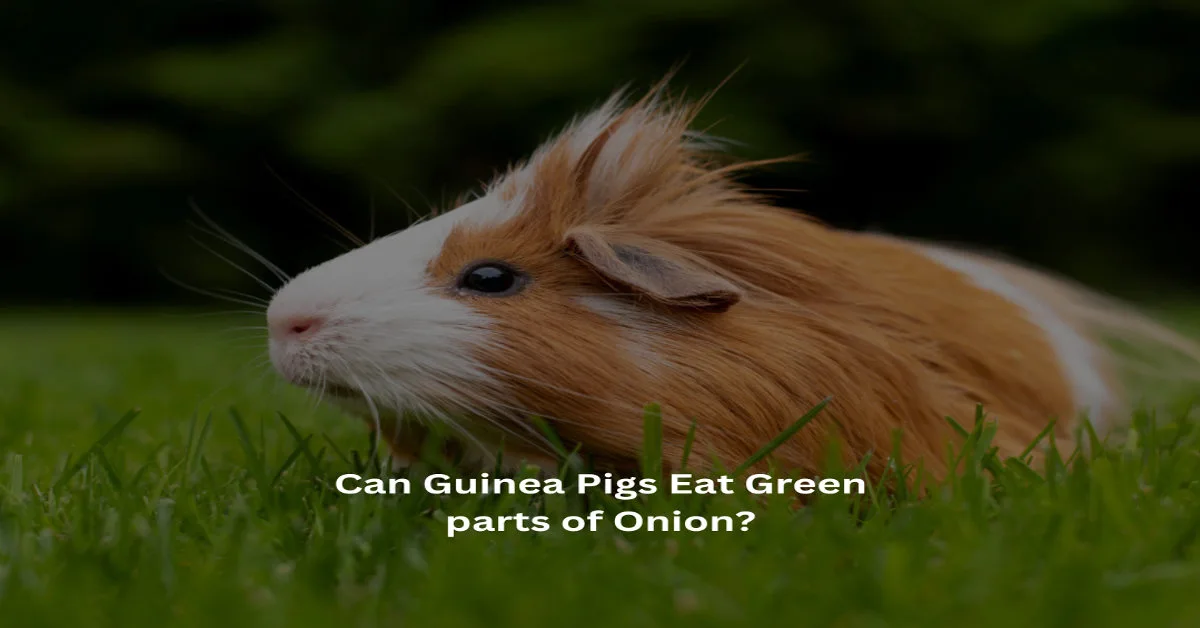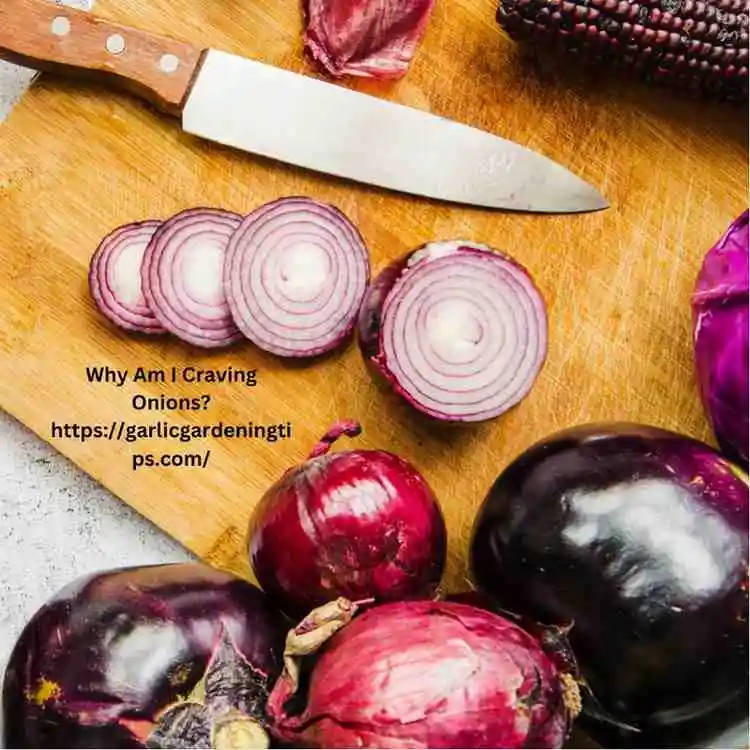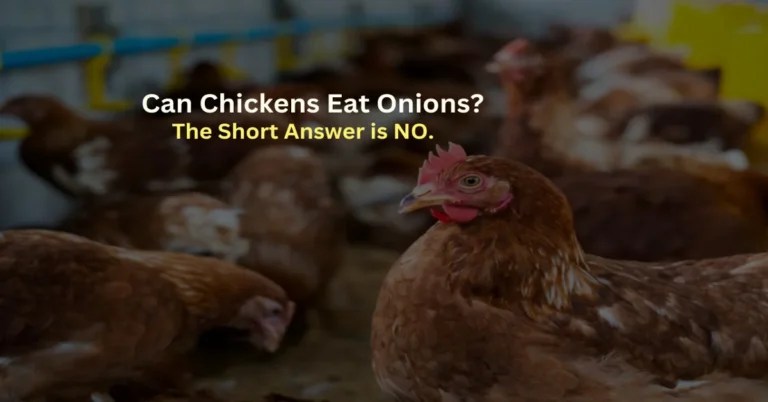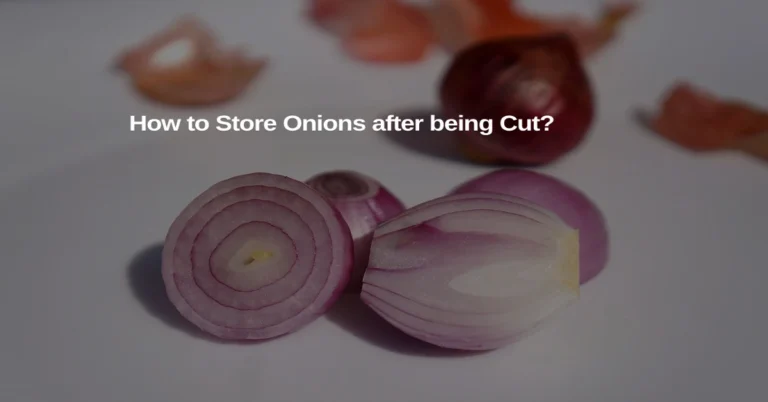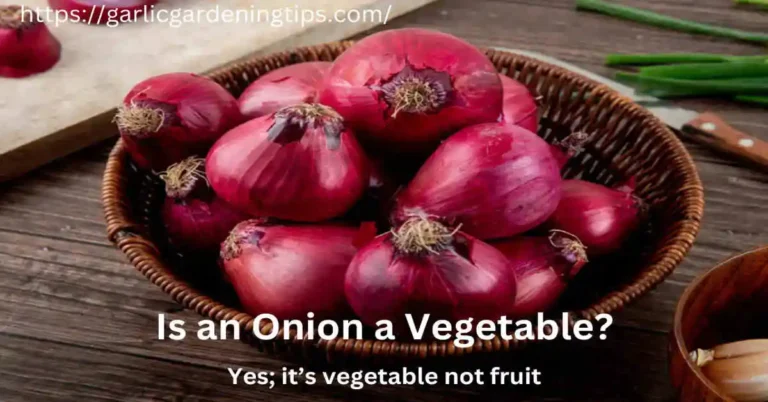Can Guinea Pigs Eat Onions? – (Are Onions Safe or Not)
As an herbivore, your Guinea Pig might love consuming vegetables all the time. For being a responsible cavy parent, it is mandatory to know which veggies are safe for them. Feeding the right food in the right amount is crucial to keeping them happy and healthy.
Onions and other family members of the allium family are harmful for guinea pigs. Even small amounts of consumptions can lead your cavy to a severe health risk. So, if your cavy accidentally consumes onions or any member of the allium family, you should immediately seek medical help for them.
In this blog, you will discover all about, “Can guinea pigs eat onions? Also Learn about the dangers of onions for guinea pigs, including toxic symptoms, treatment, and prevention tips.
See more: Can Chickens Have Onions? Find out if onions are safe for your chickens.
Why Guinea Pigs Can Not Eat Onions? – Quick Answer
The short answer is No. Onions are not safe for guinea pigs. You should not let your cavy to eat onions, even in small amounts.
While the green parts of onion may be less harmful than the bulb, they still contain toxic compounds. So it would be best practice to avoid your cavy from feeding any part of an onion, including the green tops.
Why Are Onions Bad for Guinea Pigs?
According to Pets food safety, Onions and other members of the allium family are highly toxic to guinea pigs. They contain sulfur-containing oxidants, which are released whenever the plant is chewed or broken. These toxic compounds actually destroy red blood cells in pets, which transport oxygen from lungs to the rest of the body and carry C02(carbon dioxide) back to the lungs to inhale. The rapid destruction of red blood cells makes these plants so harmful for many other pets as well.
In addition, any food that contains onion should not be offered to your guinea pig (as a general rule, processed human foods should not be offered to guinea pigs). Even small amounts of onion can be Poisonous, so it’s crucial to keep them away from your guinea pig.
In case, if you suspect that your guinea pig has ingested any part of an onion, it’s important to contact your veterinarian immediately for professional advice. A professional vet can save your pet’s life.
Signs of Onions Toxicity
The most severe symptoms of onion poisoning in guinea pigs usually show up within three days. However, toxicity depends on the ingested amount of onion; if your guinea pig has taken a lot of onion, they might start feeling sick as soon as a day later.
Signs of toxicity include:
- Lethargy: Feeling unusually tired and sluggish.
- Refusal to eat: A lack of appetite, where the animal is unwilling to consume food.
- Breathing heavily: Rapid breathing, often associated with difficulty breathing.
- Appearing weak: Feeling tired and lacking energy.
- Trembling: Involuntary shaking or trembling of the body.
- Yellow mucous membranes: Yellowish gums or mouth lining, often a sign of illness.
- Collapse: Suddenly losing consciousness or strength.
- Blood in the urine: Blood in the urine, which can signal a health problem.
In case of any symptom, seek immediate veterinary attention. If left untreated, death is possible. Early diagnosis and treatment can significantly improve the chances of recovery.
How to Treat Onion Toxicity?
A veterinarian will assess your guinea pig’s level of toxicity by symptoms and examine their blood under a microscope, if necessary. Though veterinarians can help animals that have recently consumed onions by inducing vomiting, they cannot do so in guinea pigs. This is because guinea pigs cannot vomit. Therefore, all treatment by your vet will help your guinea pig feel better. This includes oxygen therapy, blood transfusions, fluids, and other medication as needed. There is no antitoxin for onion toxicity.
Prevention Tips
- The best way to avoid your cavy from onion toxicity is to keep onions out of their reach and ensure that nobody in your house feeds them unsafe foods. Monitor your children, especially when they are around pets, to ensure that they don’t inadvertently feed them anything potentially harmful.
- Many other processed foods contain onion in other forms (such as a seasoning or a powder). As a general rule of thumb, guinea pigs should not be offered any processed human foods. Doing so ensures that they will not consume onion even accidentally.
Other Foods to Avoid
Here are some other foods that can also be harmful for your cavy. Therefore you should keep your guinea pig away from them:
- Alcohol
- Coffee or tea
- Processed foods and snacks
- Animal protein
- Chocolate
- Nuts or nut butters
- Dairy products
- Raw potatoes
- Rhubarb
What Fruits Can Guinea Pigs Eat?
Guinea pigs are little herbivores that love to munch on plants. While they can enjoy a variety of fruits as a special treat. Here is a list of fruits that guinea pigs love to eat.
1. Apples
You can give a slice of apple to your guinea pig as a treat. Some people prefer peeling the apple first to avoid potential stomach issues, while others believe that the peel has good components that may benefit your cavy. Observe how your guinea pig reacts to apples and decide from there to leave the skin on or take it off.
2. Bananas
Bananas can be wonderful treats and nutritional supplements (rich in Potassium) for your cavy. A small piece of peeled, ripened banana makes a tasty treat for your guinea pig.
3. Berries
According to botanists, not all of these fruits are true berries, but your guinea pig does not care! They will happily enjoy the following:
- Blackberries
- Blueberries
- Boysenberries
- Cranberries
- Gooseberries
- Loganberries
- Mulberries
- Raspberries
- Strawberries
4. Melons
Melons are wonderful and refreshing summer treats for both you and your guinea pig. Small pieces of these following melons can be offered as a refreshing snack:
- Cantaloupe melon
- Honeydew melon
- Watermelon
5. Grapes
Yes, both red and green grapes can be given to guinea pigs as a treat, but only one or two grapes at a time. Too many grapes can upset their stomach and lead to serious health issues.
6. Guava
If you are looking for a new treat to offer your guinea pig, try a piece of guava. It offers multiple vitamins and health benefits, but it is high in sugar. Hence, it is advised to offer only a tiny piece, once or twice a week at most.
Remember to remove the seeds before offering and monitor your cavy for any digestive issues after offering guava.
7. Citrus
Citrus fruits are safe for guinea pigs, but make sure to peel the fruit first before offering it to your cavy. They are a good source of vitamin C, which is essential for your cavy. Citrus fruits like grapefruit, oranges, and tangerines can be given to the guinea pigs as infrequent treats.
8. Kiwi
The kiwi fruit is a tasty treat, you can safely share this fruit with your guinea pig. However, offer only a tiny piece once a week. Remove all seeds to prevent choking.
9. Mango
Yes, you can share mangoes with your guinea pig. It is crucial to peel this vibrantly hued fruit before giving a slice to your pet.
10. Passion fruit
You can only offer the inside of passion fruit to your lovely cavy. The unique seedy interior of this fruit can make it an enjoyable treat.
Conclusion
Onions and all other family members of the Allium family are very dangerous to guinea pigs. Even small quantities can lead to serious health issues, including anemia and organ damage.
If you do not want to take any risk with your furry friend’s life, then avoid them feeding from these toxic foods. The first thing is to keep onions out of their reach and avoid feeding them any processed food that contains onion powder or any other harmful ingredients. By following all these precautions, you can help your guinea pig live a long and healthy life.
For more food related queries and latest gardening informative blogs visit our website: Gardening garlic tips on regular basis.
FAQs
Q1. Are Bell Peppers Safe for Guinea Pigs to Eat?
Yes, guinea pigs can consume bell peppers! They are rich source of Vitamin C, which is essential for your cavy’s health. While bell peppers are considered as a healthy treat for guinea pigs, so they should only offer small part of their diet.
Q2. Is Cheese Harmful to Guinea Pigs?
No, guinea pigs should not eat cheese because they can’t digest lactose (the sugar in milk). Dairy products like cheese, butter, milk, and yoghurt can also cause digestive upset, such as diarrhoea and stomach pain. The guinea pigs need a diet rich in fiber and low in fat, and dairy products are high in fat and low in fiber.

